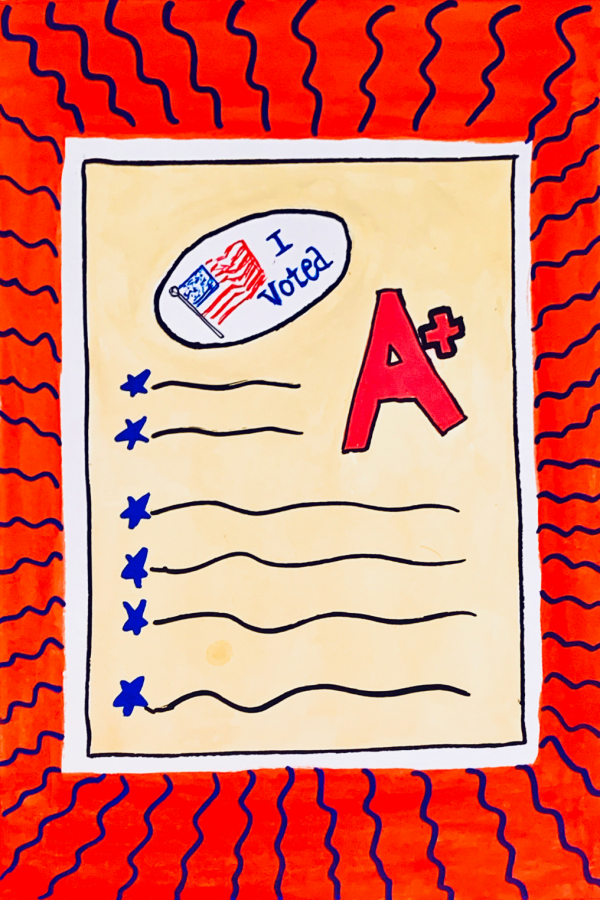Professors should incentivize voting in local elections
October 21, 2020
The 2020 general election is nothing short of historic. In just one week, early voting turnout in Texas hit a record high in several counties. More than 4 million Texas residents have cast a ballot as of Sunday, according to an analysis by the U.S. Election Project.
While it may seem like voter registration efforts are paying off, turnout for local election turnout lags far behind that of presidential elections, especially among college-age voters.
The key to boosting voter turnout among younger generations lies with college professors.
At UT, student organizations like TX Votes provide professors with informative resources every semester, including a Canvas module that educates students about when, where and how to vote for all upcoming elections.
To encourage students, particularly first-time voters, to habitually participate in local elections, professors who teach classes to freshmen should offer TX Votes’ module for extra credit every semester –– even when there isn’t a presidential election.
This semester, chemistry faculty Kate Biberdorf, Stacy Sparks and Brian Anderson offered the module in lieu of the in-person presentation they offer every semester. Students who complete it can earn up to two extra points on the final exam: one point for registering to vote and one for submitting proof that they voted. An alternative assignment is offered to students who are not eligible to vote.
“Part of our job is to teach freshmen students how to be adults,” Biberdorf said in an email. “I’ve talked to students about how to do laundry, how to wash dishes and also how to vote.”
According to Biberdorf, the module was a success. Seventy percent of Biberdorf, Sparks and Anderson’s students completed it — that’s 1,939 students who are now prepared to vote in all upcoming elections in Texas this semester.
Currently, few professors at UT incentivize voting.
“Only one of my other professors put up information about voting,” said Amelie Perez, biology freshman and first-time voter. “Besides my chemistry professor, none of my professors have offered a module for extra credit.”
If most professors who teach classes to freshmen followed Biberdorf’s example, nearly every voting-eligible freshman would have the information they need to register for and vote in any local elections in Travis county or their home county that semester. Their newfound familiarity with the voting process would also encourage them to participate in future local elections.
Additionally, offering the voting module supplements student-led efforts to inform fellow Longhorns about voting.
As the former president of TX Votes, chemistry and public health senior Anthony Zhang helped educate countless students about the voting process. With many freshmen living away from campus, he believes that professors should share this responsibility because they’re able to reach students more easily.
“Freshmen are younger, so most of them probably have not voted before,” Zhang said. “In a year like this where people are all over the place, it’s even more important (to inform freshmen about voting) because county-by-county, there are some nuances in the voting process.”
Amid the chaos of the pandemic, first-time voter confusion could dissuade freshmen from participating in local elections. However, as the chemistry faculty’s use of the module demonstrated, a desirable incentive encourages students to stay democratically engaged during these trying times.
“I would encourage any professor to consider using the module in the future because the students found it to be very informative,” Biberdorf said in an email. “There were even pieces of information that were new to me, and I’ve been voting for 16 years!”
Like TX Votes, many student organizations work hard to promote democratic engagement on campus. It’s time professors do the same within their classrooms.











